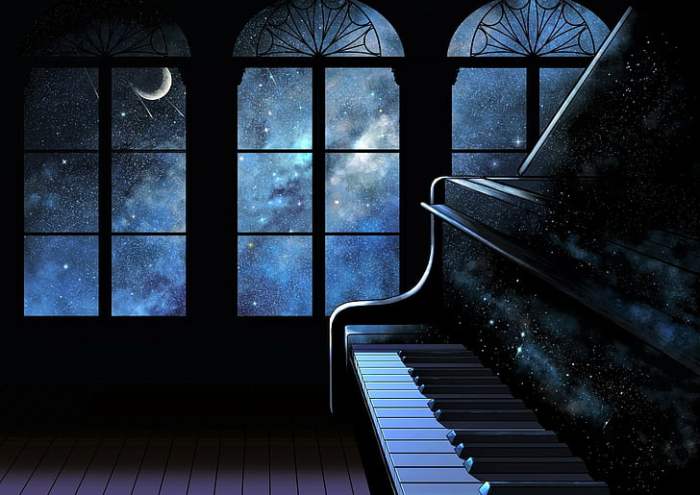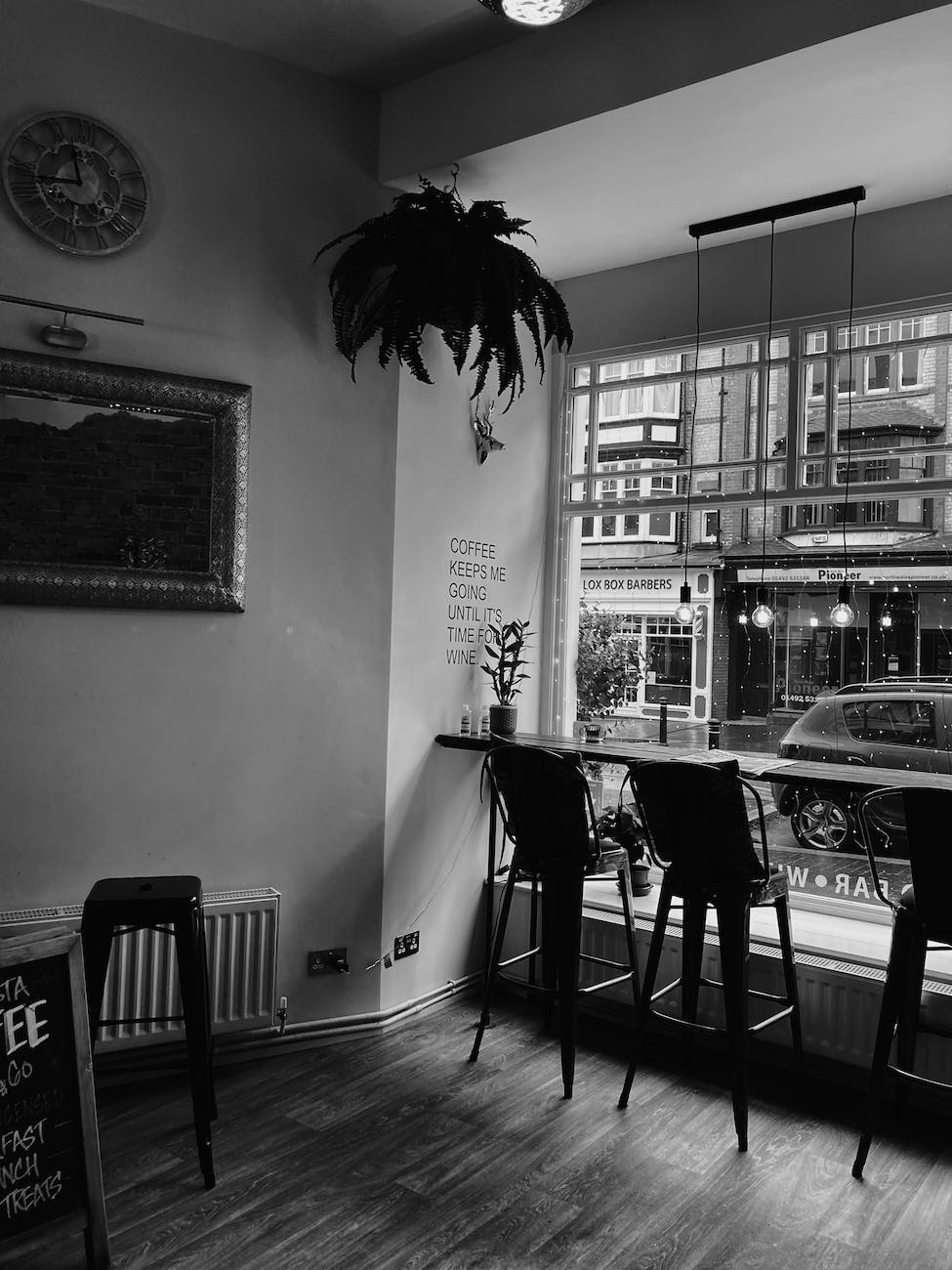Such Music
Chapter 1: Prelude
Such music, after all this time.
I watched from the shadows as the orchestra played, and remembered the first day I saw the composer at his desk, writing by candlelight far into the night, hearing the scratch of his quill, noting the painstaking furrow of concentration as he filled his pages with the sounds in his head.
Indeed, the sounds in his heart.
He struggled toward sunrise, losing the thread of his muse’s robe.
He needed sleep; the music was there, but he needed to incubate to give it birth.
It saddened me to see he didn’t know that.
In a fit of fatigued despair, he rubbed his face with his hands and retired.
I let him go, preferring he suffer to create his art in his humanity rather than inflict undead unholiness.
As difficult as it was to acknowledge, I knew the concert halls would not survive without him if I kept his gift to myself.
Young, brilliant, bursting with the energy of youth’s high, hot blood, he was quite the catch. He had no shortage of women firing their fragrant arrows at him, lading his tables with gifts of high value, both in land and possessions of indolence.
In the absence of those, they gilded his sheets with their flesh.
If by chance I watched his sordid indulgences, it was with sadness and not from voyeurism. My anger would rage, but as his Muse, I could not withhold his talent.
That his wife knew of his indiscretion was written on her face when the room was empty, but while he was present she played her role well, even laughing at his somewhat crude humor.
To his credit, he never regaled her with tales of his infidelity, even when they argued.
His children smiled and doted on him, giggling as he tickled them, and when he taught them, the inherited furrowed brows of concentration matched his as they sought to master the music placed in front of them, knowing it would please him.
Musically gifted, they seemed uninspired by him to take up the lifestyle of a musician, watching the torment their father went through as he struggled to finish a commission.
They had no idea of his lechery.
He was careful to glean all traces of suh visits, burning clothing, and threatened any servants who thought gossip would earn them favor with his enemies or free themselves from his bonds of service.
In the only time one of the dalliances got pregnant, they soon disappeared.
I had my suspicions, indeed, my certainty, that it was not a coincidence, but things went on as before.
What they said to those who were investigating her disappearance was never discussed in my presence.
Those thoughts always seemed to leave when he was finished.
His ritualistic whiskey would be poured, and an expensive imported cigar would be smoked as he’d celebrate the completion alone at first, before calling down and celebrating with his family.
After they’d gone to bed, he’d leave to celebrate in a town brothel known for its nubility, where in a euphoric state he matched their youthful vigor with his own.
Such matters were not my concern, but as I said, I would stay sometimes, and see his creative aura grow stronger for indulging the vice.
More often I left, for a muse off their guard could manifest accidentally.
*****************
In the beginning, when we openly inhabited the world, we hadn’t known that.
After it happened, we soon learned that men will hunt spirits too.
For protection we created the boundaries separating us in these times and hid behind it. The absence of our physical forms faded, but the memories were somehow passed down turning our lives into myths and legends.
In time we heard the prayers of our worshipers turn into sea shanties, bawdy limericks, and song lyrics that mocked the damned who sang them. To the muses, the gods were as fickle and childish as those they created and charged with their care.
For some reason this composer received more musical gifts than most of his generation, and his compositions were glorious.
They enthralled even those who told me to grant the extra portions to him.
I couldn’t figure out why, and wanted to ask, but any number of impulses could’ve made the gods answer me, ignore me, or punish me for a perceived insolence. My silence guaranteed my freedom, so I kept it.
I killed my curiosity, and tended to him.
Chapter 2 The End of the Run
It is ever with humankind that cycles come and go, and the music, though still glorious, was no longer filling the halls, was being challenged by new composers who although they paid homage to his influence on their own songs, dared not try to copy him.
Of course he raged and placed himself above them.
Of course his fortune was ravaged by the vultures who shared his snuff, his whiskey, and his bed.
His children cursed and mocked him as the ravages of his sins began to manifest, and their own dealings with the world ripped the tearful veil of innocence from their eyes.
His shamed wife shut herself up in her rooms, content with a cadre of small dogs who began to starve, and the inane chatter of servants who began to leave.
I stayed for those times too, as he sat at his desk, dipped his pen, and tried to write the songs I shared.
But his ears were full of hair now, and his heart full of sadness, and both were deaf to the beauty still inherent in his mind.
The pen would fall, and his chin would fall with it as he slept, his snores replacing the scratching, his nightmares replacing his dreams.
I went to the gods to tell them, hoping they would see the reasoning behind my petition to be free of service for this one.
I wept as I pleaded my case, and it surprised us all.
The god-king, however, was compassionate, and granted my request.
When I went back for the last time, he’d fallen on the floor, and his wife sat there in the dim candlelight, a rocking, softly keening shadow with his head in her lap, and the small dogs in curious silence surrounding her.
I moved closer, and saw that death had, in fact, already granted my petition.
There was nothing I could do to aid her.
The small dogs were looking at me, silent, unmoving, waiting to see what I would do, if anything, to help their mistress in her quiet grief.
She herself didn’t see me, or even sense my presence.
I disappeared.
************
Such glorious music.
He enjoyed a long and prosperous reign, but the indulgences of his vices caught up with his mortality, and the two began a final dance, hand in hand, slow and inexorable, as the song of his life reached its inevitable conclusion.
A final rest.
Chapter 3: Dark Kudzu
No one saw his family leave, or even knew when.
The place fell into vine- covered disrepair, and animals and children found their way inside to play games and hunt each other.
The older youth used it for secret dalliances.
Both gave way to the criminals who used it for a meeting place and hideout.
The secrets piled up, full of waste and secretions, whispers and blood, weapons of steel and high passion, and the beautiful gardens in the vast yards before and behind the great house proliferated, letting the weather and scavengers hide all the evidence.
I saw all of it, and in a moment of regret, became foolish.
I should have moved on, to find another worthy talent, but as I attended those concert halls to hear the glorious crescendos of his symphonies once more, the beauty of his compositions haunted me, the background music to all my own dreams.
And later, so very much later, to my nightmares.
I briefly wondered: Am I becoming mortal?
I wondered if I cared.
Chapter 4: A Needed Revival
His despondent lassitude made him gaunt, and his creative aura had holes all around it, dissipating and growing more translucent.
I couldn’t allow it.
Wake up. Drive them out, and reclaim me.
He woke, slowly, like the last dying flower unfurling in the sun for the last time.
Reclaim your home.
Now sitting on the edge of his bed, he rubbed his face with both hands.
From where I stood he was pallid,thin, gray-skinned, and haggard.
Reclaim your talent.
He looked around, as if he’d heard my voice call to him, but he said nothing.
Reclaim yourself.
Someone broke something downstairs.
He put dirty clothes on an unwashed body, took his weapon from the nightstand, and went down to face the threat.
***************
The screams and the rumble of the unwelcome transients stampeding toward the door was a piercing din. His curses echoed through the house.
He cut, but did not kill. Whether it was deliberate I never knew.
The sad, newly released rage was almost palpable in its energy, total in its consumption.
When I lifted him to his knees and held him in my own unsteady arms, he screamed and cried until I took all of his pain, and gave him the seed of what would become his greatest work.
Chapter 5: A Finale
He spent the night in his cups, between naps.
He muttered and tossed, and vomited what little he ate.
I stood by the piano, waiting, the pain of his screams still ringing in my ears.
The demons of his life assailed him for the next few days.
More than once, I saw him turn the sword toward himself, but the trembling took hold, and whatever myriad memories and regret stayed his hand, perhaps he deemed it too easy.
I sang, not so he could hear, but to plant the harmonies into him.
Over the next few days, he sat with his glass half empty and his head at an angle, as if he was listening to something.
It was encouraging.
On the day he opened the curtains to the sun, I gave him the crescendo.
On the day he bathed, shaved, and donned clean clothes, he came downstairs and stared at the piano.
I sang the piece from the beginning into his spirit, and he took some hesitant steps toward the piano bench, but he only sat, facing the wrong way, with tears in his eyes as the sun poured dust motes onto his clean shirt.
I left him then, wondering what more, if anything, I could do.
****************
In the middle of the night he came downstairs.
In the rectangle of the full moon’s light that poured through the high window, he looked at the stars and sighed.
His hand touched the piano, lingering on the side of it, a shy lover cupping his lady’s blushing cheek.
I watched.
The hand slipped over the side toward the keys, trailing fingerprints in the dust.
I waited.
He went to his desk, and took out the music parchment, quill, and ink.
At first light he lovingly set the paper against the piano’s holder, looked at it for a moment, and went back upstairs to bed, leaving me in the brightening shadows longing to hear him once more.
I left.
Chapter 6: A Grand Finale
His return to the concert halls of his native land turned into a grand event.
Being only able to gift him with music, I could not remove the ravages of time that marked his torment.They’d had their way with him, but in polite society the shocked, widened eyes and grimaces of disgust were shielded and shared among each other.
It wasn’t always so, but when they failed he pretended not to see it.
As glad as they were to see him again, it was the music they came to hear.
******************
Royalty and all their wealthy entourage and hangers-on were in attendance.
The musicians did their due diligence, tuning and perfecting pitches, warming their lips, hands and fingers as they prepared.
He sat on the balcony, his wife next to him.
They’d left the children behind, which was just as well.
The conductor came out to thunderous applause, turned to where he sat, and gave him a nod, acknowledging his personal approval of the score.
With a soft trilling of violin strings, the journey began.
**************************
When the final note faded into the rafters, the long silence that followed was shattered by thunderous applause, loud cheers, and stomping.
The exhausted, hot musicians were smiling, and the conductor, his own smile beaming, took them in with an expansive sweep of his baton, then gestured to my composer.
The applause somehow grew louder, and a new surge of cheers had some covering their ears.
He stood up with his wife, who held his arm and gave him an adoring look.
He returned it and kissed her cheek.
Flowers were pressed into her hands, cigars into his.
The royalty signaled for quiet, and the sounds of approval subsided.
The whoever-was-in-charge waited, then spoke to all of them.
“Never has such music graced these walls. I believe that piece was the best we’ve heard here.”
More applause, then the usual chaos of exiting a crowded place ensued.
The whoever-in-charge summoned him, and he dismissed his wife, telling her to wait outside.
***************
“We’d like to commission you to do a piece for the princess’ birthday.”
“Forgive me, your highness, but I must decline.”
A stunned silence followed as his highness tried to recover, a simmering anger at this impudence thinning his lips as he spoke through his teeth.
“And tell me, then, what makes you think you can defy a royal commission?”
“Such composing is physically demanding, your highness. I could not complete another piece in time for her birthday.”
“She’s a child, sir. It need not be as grand a composition as this.”
“Nevertheless, it is for the court to hear, so it must be excellent, if not grand.”
The royal nodded. “True.”
“Look at me, your highness. This piece took the last of my strength, if not my will.”
“What do you need from me, then, to help you?”
“From you, nothing. From the heavens, time to heal, rest, and think.”
The royal nodded. “I will grant your request, for we have time, but we’ll talk again, my talented friend.”
“Very well, your highness.”
My task was finished, and I turned to go, then I felt a rough hand on my shoulder.
I froze, not turning around as the hand settled on me.
“Thank you,” he said.
I hesitated a long moment, questions running through my mind, but keeping my silence, I slipped from under his hand into the cold, glorious night.









